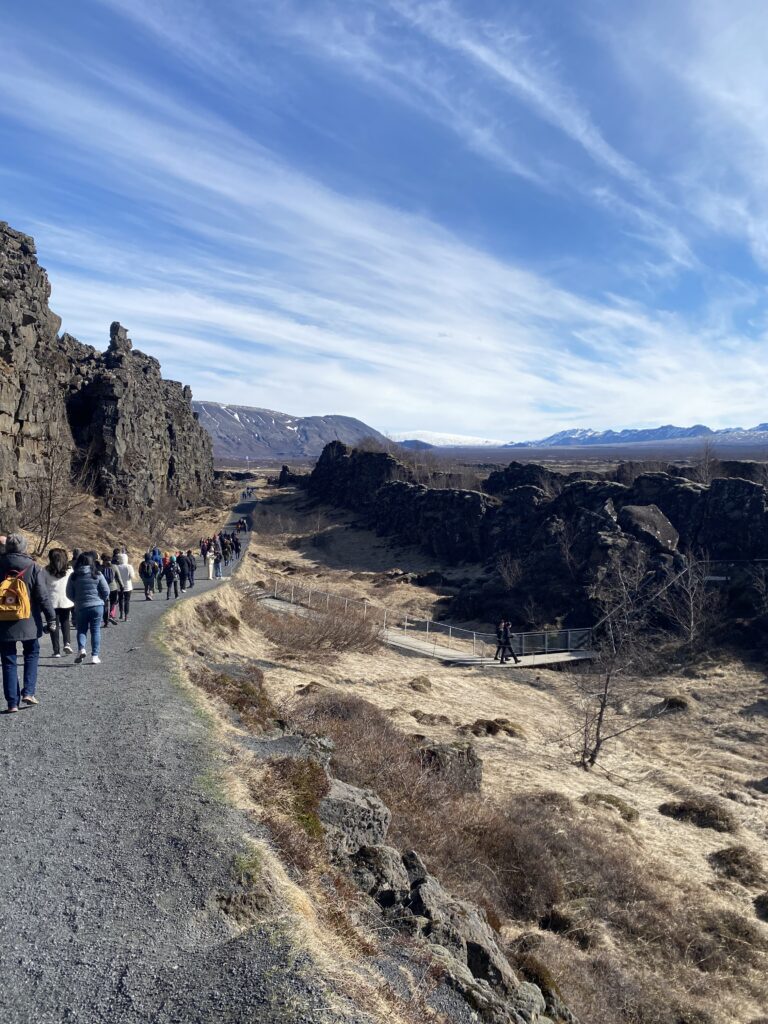
CEATL held its Annual General Meeting in the Icelandic capital from 25th to 27th April under a clear blue sky. The AGM is always an eagerly-awaited occasion for an association like ours, whose members are scattered across Europe. Each year provides an opportunity to explore the home base of one of our member associations and to familiarise ourselves with the local publishing sector.
In 2024, our delegates turned out in force, with thirty-seven attending from twenty-four countries. Many thanks to Guðrún Catherine Emilsdóttir, Katrín Harðardóttir and Jóhann R. Kristjánsson, from the Icelandic association BTHOT (https://bthot NULL.is/) (which is celebrating its 20th anniversary this year), for organising such a smooth-running event, and to Þórunn Hafstað of RSÍ (https://rsi NULL.is/) for her help with the public event; their warm welcome was much appreciated.

37 delegates from 24 countries
Thursday afternoon was devoted to Working group meetings, while on Friday and Saturday we discussed the progress of our various initiatives and made plans for the coming year – more about that later on this website. Among the items on the agenda was the European Conference on Literary Translation, which will take place in Strasbourg in October; our e-zine Counterpoint; our latest surveys; and the repercussions of the vote on the European Union’s AI Act (https://www NULL.europarl NULL.europa NULL.eu/topics/en/article/20230601STO93804/eu-ai-act-first-regulation-on-artificial-intelligence), as well as a few internal organisational matters. At lunchtime, we held our traditional “Good Vibes session”, in which each association has one minute to recount its best success story of the year.
We were also delighted to accept (by a unanimous vote) the application of a new member: the Slovakian association DoSlov (https://www NULL.doslov NULL.sk/). Welcome to DoSlov! This brings our total number of member associations to 36, from 27 European countries.
Our presence in Reykjavík provided the opportunity for an introduction to Icelandic literature prepared by Hrefna Haraldsóttir, the Director of the Icelandic Literature Centre, as well as a presentation of the Reykjavík Literary Agency by Stella Jóhannesdóttir, and a round-table meeting at the House of Icelandic Studies with local authors, translators and publishers, discussing the future of literary translation in Iceland. The latter led to a rich and fruitful discussion, involving both the panel and our delegates, on the legal status of translators, concerns about AI, and the problem posed by the uncontrolled exploitation of translations by a certain audiobook platform.

Walking the line : our delegates on the edge of the European tectonic plate.
Finally, after the AGM officially closed, Guðrún Catherine Emilsdóttir was kind enough to propose optional excursions: a guided punk tour of the city, and a tour of some spectacular natural sites outside Reykjavík. We walked along the edge of the European tectonic plate and in the footsteps of the old Icelandic clan leaders at Thingvellir, pondered the power of underground networks at Geysir and admired the strength of water droplets when they join forces at the superb Gullfoss waterfall. After the intense work sessions of the AGM, such unforgettable moments shared together also contribute to the cohesion of our association, and boost the pleasure of working together.

